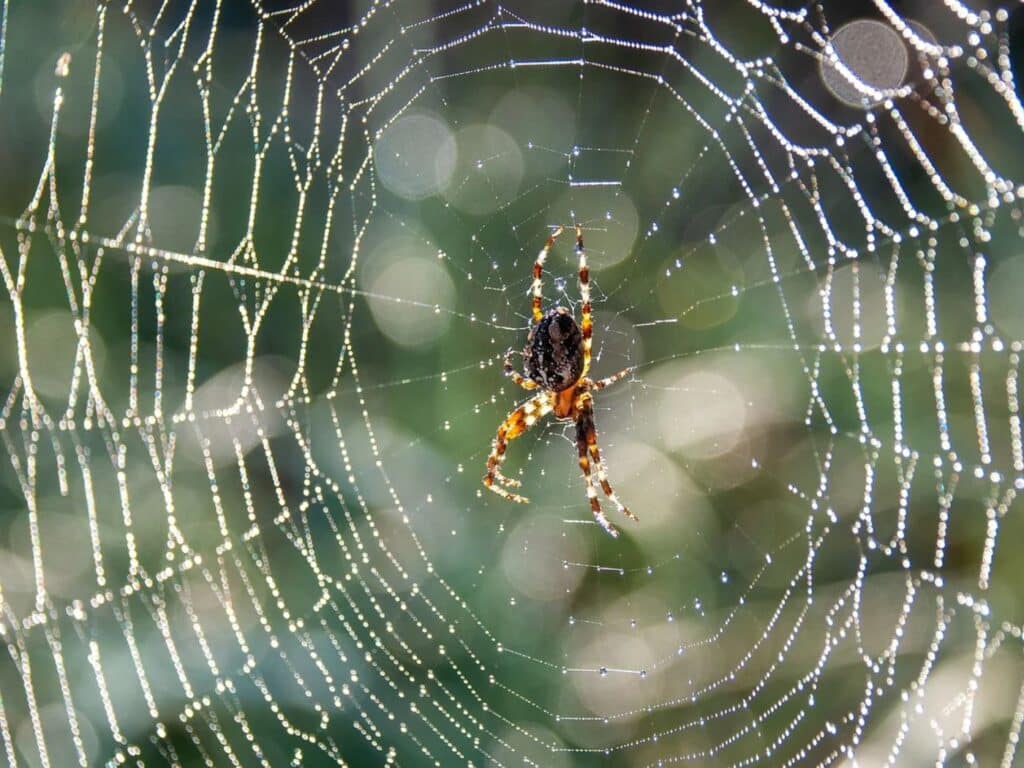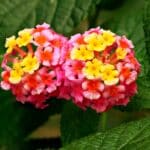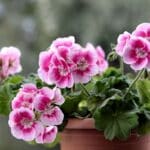Imagine walking into your garden, only to be greeted by a spider’s web right across your face. Not a pleasant experience, is it? If you’re tired of these eight-legged intruders making themselves at home in your space, you’re in the right place.
We’re about to explore the power of plants in creating a spider-free zone. Yes, you read that right. Certain plants can act as natural deterrents, keeping spiders at bay. Intrigued? Let’s delve into the world of these unique plants and learn how to use them effectively.
Exploring Common Plants That Repel Spiders
Let’s delve straight into how you can safeguard your green spaces using the natural spider deterring properties of common plants.
Lavender: A Natural Spider Repellent
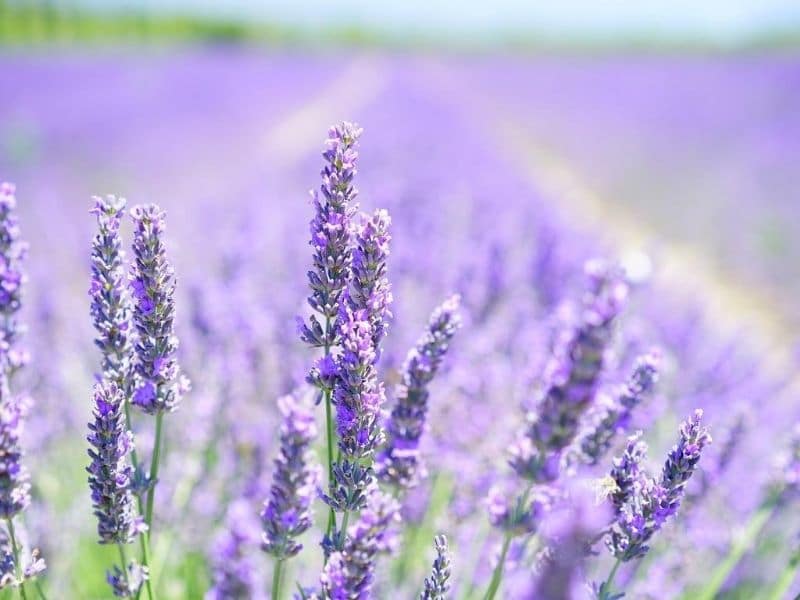
Lavender, with its unmistakable aroma, is a spider’s nightmare. This beloved herb sends out a strong scent that spiders find unbearable, making it a natural repellent. Not just spicing up your garden decor, it also keeps those eight-legged creatures at bay.
Citronella: More Than Just a Mosquito Repellant

Yes, citronella is famed for warding off mosquitoes, but its abilities go beyond. Its distinctive, citrusy aroma can also keep spiders away. Planting a few of these in your garden not only uplifts the ambiance but also creates a spider-free zone.
Peppermint: A Strong Scent Spiders Hate

Peppermint is well known for its potent and refreshing fragrance. This may well be pleasing to our noses, but spiders can’t stand it. Plant peppermint around your home; it’s an efficient way to deter spiders while adding a soothing aroma to your surroundings.
Basil: A Culinary Herb With Repelling Properties
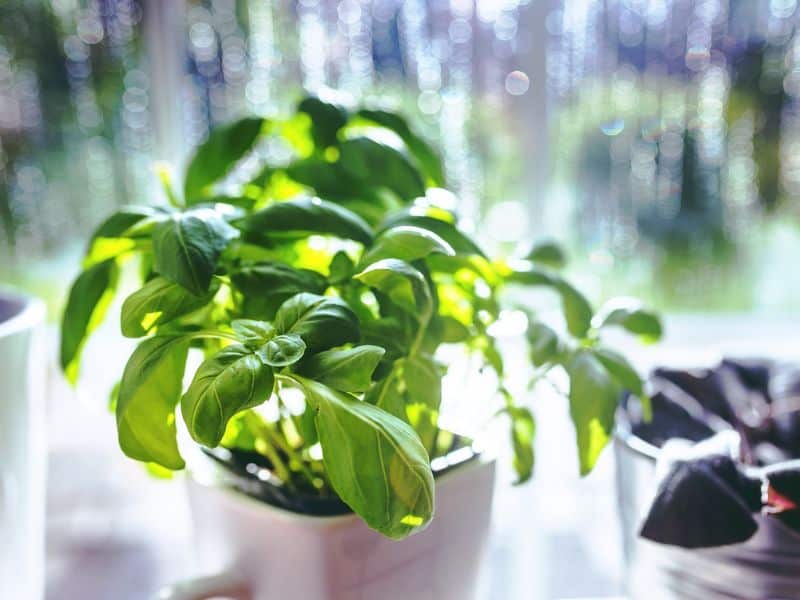
Beyond being a staple herb in many cuisines, basil also works as a strong spider deterrent. The robust scent of basil is something spiders prefer to keep a distance from. Plant this miraculous herb in pots around your home and keep spiders out while enjoying its culinary benefits.
Effects and Mechanisms of Action
Let’s delve deeper into understanding how plants ward off spiders and what environmental factors can impact this natural form of pest control.
How Plant Volatiles Discourage Spider Presence
Plants emit volatiles, organic compounds that swiftly evaporate in the atmosphere. These volatiles are part of a plant’s natural defense mechanism against pests, including spiders.
Why do these volatiles repel spiders? It’s quite fascinating. Spiders have highly sensitive chemoreceptors – similar to our sense of smell and taste – allowing them to detect the presence of these volatiles.
Once they sense them, it acts like a ‘stay away’ signal, urging them to steer clear. Thus, spiders often avoid plants with strong aromatic profiles like Lavender or Peppermint, deterring their presence in your garden.
Environmental Factors Influencing Efficacy
However, keep in mind the effectiveness of this natural repellant heavily depends on a few environmental factors.
For example, weather conditions can greatly impact a plant’s production of volatiles. Extreme hot or cold weather may reduce the emission of these compounds, potentially making the plants less effective as spider deterrents.
In addition, spiders’ sensitivity to plant volatiles can vary. Some spider species may well be deterred by the scent of Basil or Citronella, while others may well not.
Additionally, the distance between the plant and the spider also influences the repellent’s effectiveness. It’s advisable to place these plants at strategic points in your garden for optimal results.
Remember, understanding these mechanisms and noting the influence of your local environmental condition can enhance the efficacy of your spider-repelling garden. Find what works best for your setting and tick off the spider menace naturally and effectively off your list.
Plant Placement and Effective Strategies
Marvelous! We’ve learned about planting spider repellent greenery. Now let’s deep dive into the strategic placement of these plants and some clever combinations.
Best Locations in Your House for Repellent Plants
Place fragrant plants such as Citronella, Lavender, Peppermint, and Basil near doorways, windows, vents, and any area where spiders may sneak into your home.
Got an enclosed patio or a sunroom? Great! Showcase your pots filled with spider repelling plants there. Spiders hate walking over volatile plant clusters, so they’ll think twice before venturing close.
Plant placement involves more than just setting up greenery in random corners; it’s strategic positioning to create livelihood barriers between you and unwanted eight-legged guests.
Additional Tips for a Spider-Free Home
Accomplishing a spider-free home involves more than just positioning the right plants. Let’s delve deeper into additional strategies for maintaining a spider-resistant environment:
Regular Maintenance of Repellent Plants
Your spider repellents—Lavender, Citronella, Peppermint, and Basil—need regular care to sustain their volatility. These plants thrive best under certain conditions, and here’s what you can do:
- Ensure they get plenty of sunshine: These plants love the sun. Station them at a spot where they’ll get at least six hours of sunlight every day.
- Regular watering: Most aromatic plants prefer their soil a bit on the dry side. Water only when the soil feels dry to the touch.
- Pruning: Regular pruning can stimulate growth and increase the release of spider-repellent scents. Adopt a pruning schedule, but avoid over-pruning as it can stress the plant.
Other Natural Spider Repellent Strategies
Plant-based barriers will do their bit, but there are additional strategies too that can help you maintain a spider-free home.
- Essential oils: Essential oils extracted from the same spider-repelling plants can be utilized to boost their effect. You can create a diluted mixture with water and spray it around windows and doors.
- Diatomaceous earth: This is a natural powder made from tiny fossilized aquatic organisms. Spiders hate crossing this powder, making it an effective barrier.
- Vinegar: A solution of white vinegar and water can be sprayed in areas where you’ve noticed spider activity. The acetic acid in vinegar is harmful to spiders.
Remember, persistence is key. Regular application of these strategies can help keep your home spider-free.
Up next: 7 Plants That Keep Flies Away: Your Natural Solution to Fly Control Indoors and Outdoors

